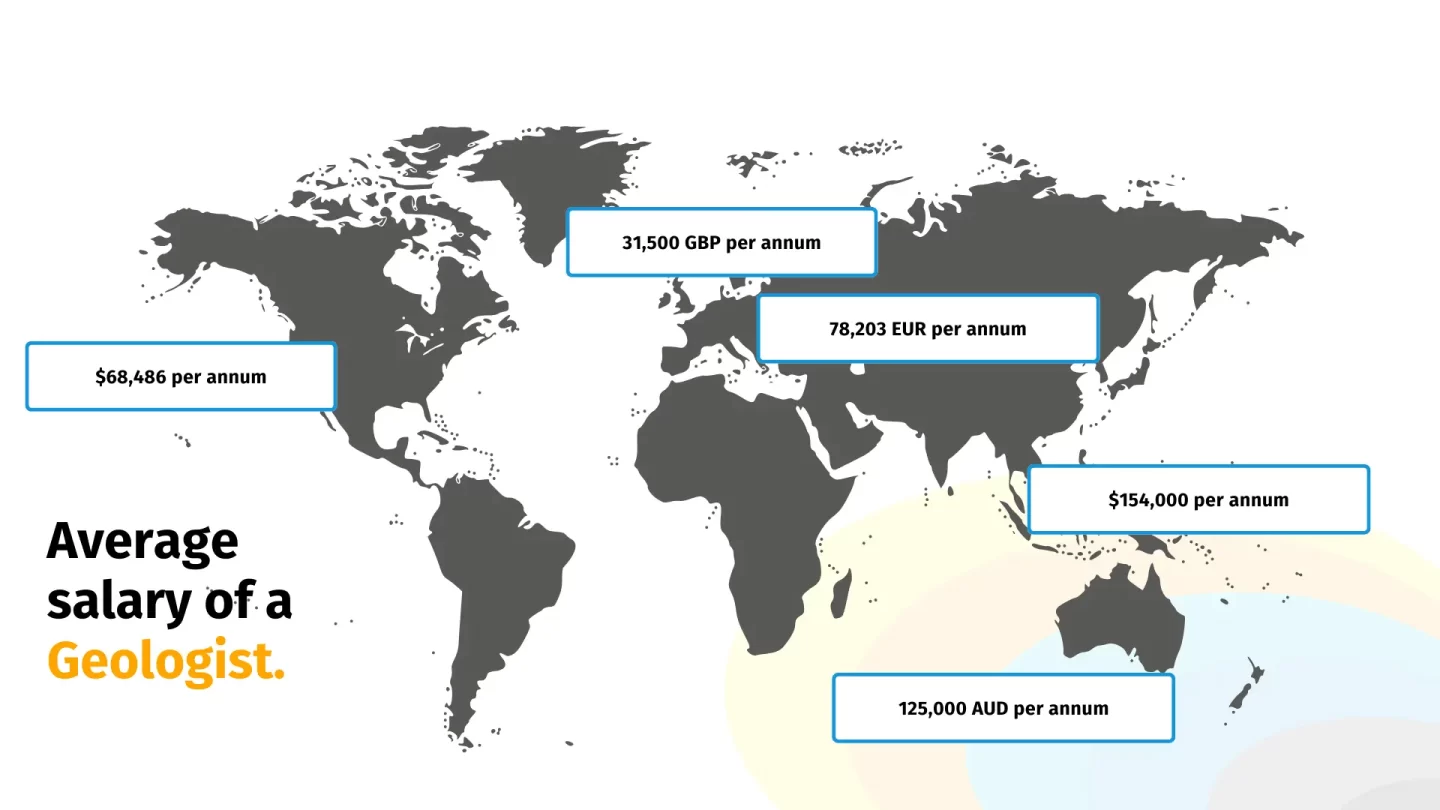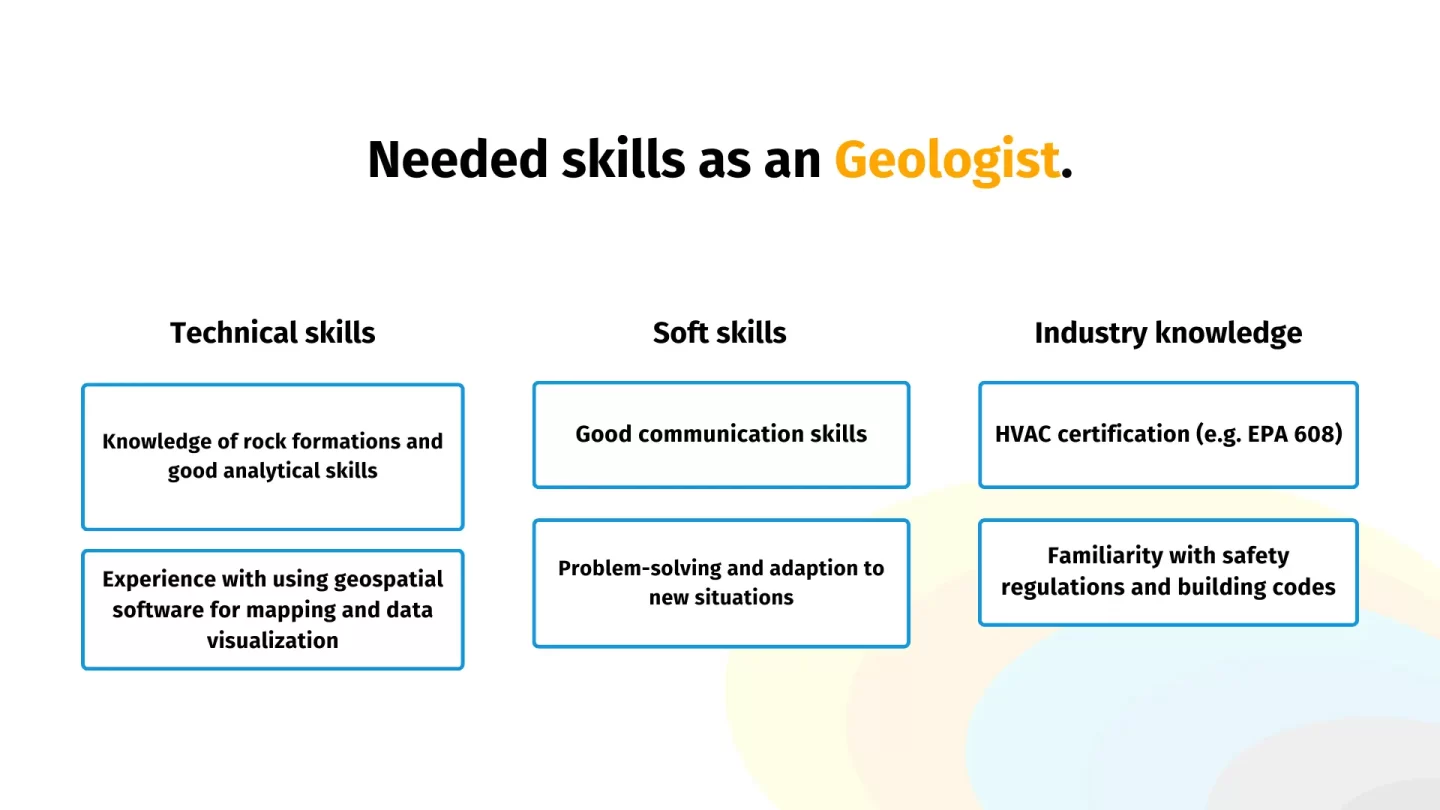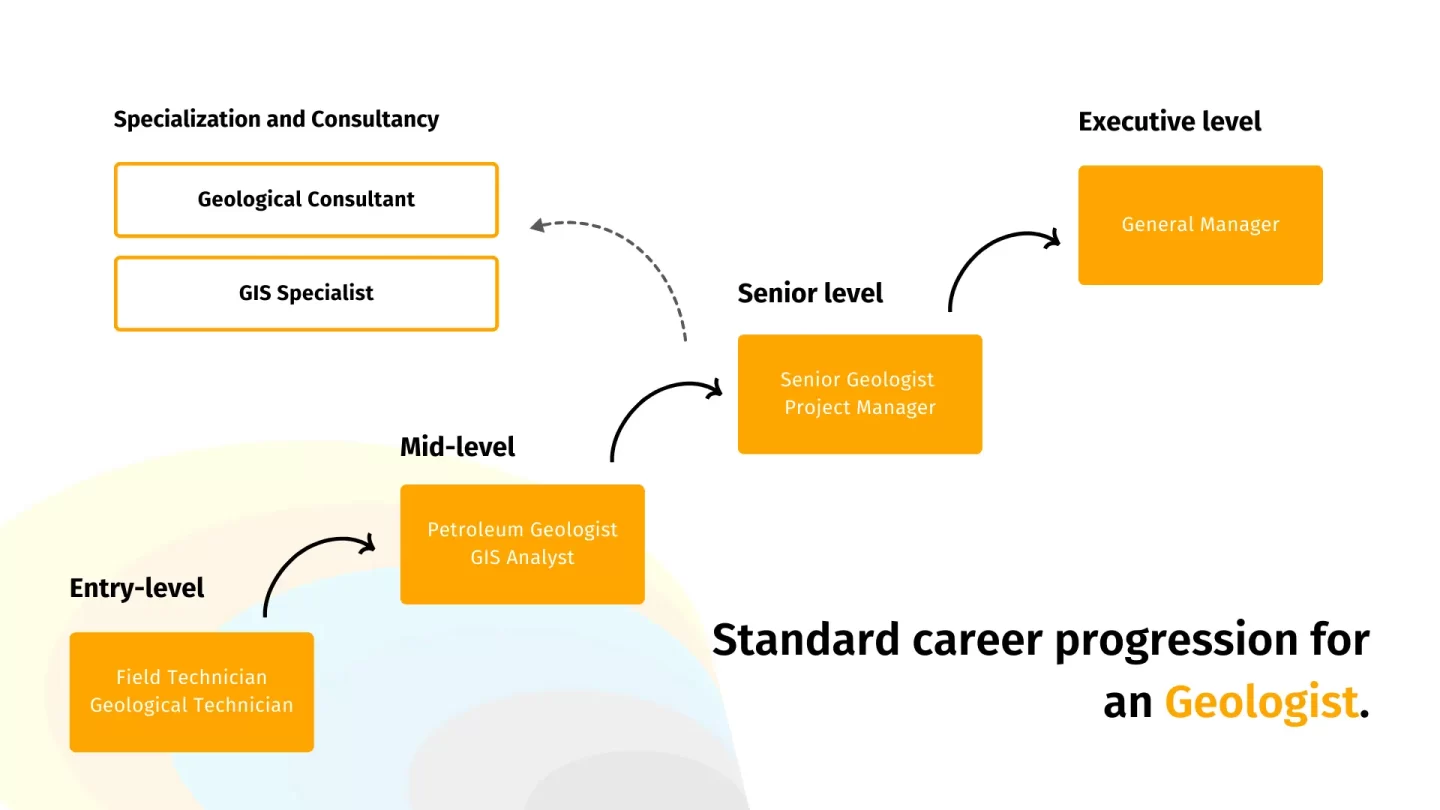Why work as a geologist?
Working as a geologist is all about combining your passion for the earth with making a real-world impact. You get to explore and understand the planet’s resources while helping shape the future of energy. As a geologist in energy, you will be at the forefront of developing new energy sources and sustainable solutions. The role offers a challenging career path, combining fieldwork with cutting-edge technology. If you thrive on adventure, science and making a difference, this is an ideal career choice.
What is a geologist?
A geologist is a scientist who studies the Earth’s materials, such as rocks, minerals, and natural resources like oil, gas, and water. They explore how these materials form and change, helping us understand the Earth’s structure and history. Geologists are crucial in industries like energy, mining, and environmental protection. Additionally, geologists play key roles in industries like renewable energy, water resource management, and infrastructure development, making their skills highly valuable across different sectors.
What Does a geologist at an energy company do?
At an energy company, a geologist explores and manages the Earth’s natural resources. Their work typically involves identifying potential sites for energy extraction, such as oil, gas, or geothermal reserves, by analysing geological data and conducting field surveys. They collect rock and soil samples, perform tests, and interpret the results to assess the quality and quantity of these resources.
Geologists at energy companies create geological maps and models. They collaborate with engineers and drillers to ensure safe and efficient extraction. They also monitor environmental impacts. Their insights promote sustainable energy solutions and minimize environmental risks. They contribute to climate change discussions, offering expertise on responsible resource use and preservation.
Salary and Benefits

The average salary for geologists varies globally. For example, in the United States , The average Geologist salary in the United States is $68,486 as of October 01, 2024, but the salary range typically falls between $60,812 and $87,522.
While in the United Kingdom , the figure stands at around £31,500 annually. In Europe, particularly in the Netherlands , geologists receive approximately € 78.203 per year.
In Australia , the average salary is about $125,000 annually. Similarly, in regions like Singapore , the demand for skilled geologists reflects an average yearly salary of 154,000 SGD, illustrating the global demand for professionals in this field.
Beyond competitive pay, geologists often benefit from comprehensive packages that include health insurance, retirement plans, and paid time off. Many employers offer perks like flexible working hours and opportunities for further education and professional development. They also provide travel allowances and sometimes housing allowances for roles requiring relocation or extensive travel.
geologist skills and requirements

To succeed as a geologist in energy, you need technical skills and personal qualities. Good analytical skills are needed to understand geological data, including rock formations and using geospatial software for mapping and data visualization. Knowing how to use field and lab equipment is important for detailed studies in different environments.
Good communication skills are also important. Geologists must explain complex data to different people, making sure that everyone understands it and knows what to do with it. They often have to solve problems and adapt to new situations. Geologists can manage resources, assess environmental impacts and contribute to sustainable energy solutions.
Responsibilities of a geologist
Here are the key responsibilities of a geologist in the energy sector:
Conducting Fieldwork
Geologists map geological formations, collect various samples, and measure seismic activity to study rock formations and mineral deposits.
Analyzing Data
Post-fieldwork, geologists use techniques like stratigraphy and geochemistry to analyze geological materials and processes, interpreting the data to identify patterns and anomalies.
Preparing Reports
They interpret collected data to form conclusions and prepare comprehensive reports. These findings are presented to stakeholders with visual aids to clarify and provide actionable insights.
Conducting Research
Geologists undertake research projects to deepen understanding of the Earth’s history and resources, often developing models and collaborating with other scientific experts.
Assessing Environmental Risks
They evaluate risks from natural disasters and human activities, developing strategies to mitigate these risks and assessing the environmental impacts.
Resource Exploration and Management
In resource exploration, geologists locate and assess the viability of natural resources, focusing on sustainable extraction and management practices.
Locations of geologist jobs
Commonly, geologists are employed in areas rich in natural resources or geological activity.
Major oil and gas hubs like Texas, Alaska, and parts of the Middle East often have a high demand for geologists. Mining regions such as Australia, Canada, and parts of Africa also offer numerous opportunities. Urban centers and capitals may provide jobs in government and environmental consulting. Additionally, academic and research positions are typically associated with major universities and research institutions worldwide.
Challenges of being a geologist
Some common challenges that geologists face at the beginning of their career include:
Remote and Harsh Working Conditions
Geologists often face tough environments, working in remote areas under extreme weather conditions.
Complex Data Interpretation:
Early career geologists need to quickly master the interpretation of complex geological data using advanced software and methods.
Multidisciplinary Collaboration
Effective communication and collaboration with professionals from different fields are crucial for project success.
Regulatory Compliance
Navigating the complex regulatory environment for projects related to resource extraction or environmental assessments is challenging.
Technological Advancements
Keeping up with rapid advancements in geology-related technologies and techniques is essential.
Career Advancement
Finding opportunities for professional growth and gaining diverse experiences can be challenging for young geologists.
Career progression and growth opportunities

The career progression for geologists in the energy industry is marked by distinct stages, each offering unique growth opportunities:
- Entry-Level Positions: Start as Field Technicians or Geological Technicians, focusing on fieldwork and basic data analysis to build foundational geological skills.
- Mid-Level Expertise: Move into roles like Petroleum Geologist or GIS Analyst, which involve specialized tasks such as conducting surveys and managing environmental assessments, with opportunities to lead projects.
- Advanced Professional Roles: Progress to positions like Senior Geologist or Project Manager, overseeing larger projects and teams, focusing on strategic management and complex analyses.
- Leadership and Specialization: Ascend to senior leadership roles like General Manager or Director, where strategic oversight and decision-making drive major company objectives and exploration strategies.
Each stage provides geologists with the chance to develop professionally, from hands-on technical work to strategic leadership.
Work environment and culture
Geologists frequently conduct fieldwork, mapping geological features and collecting samples. This fieldwork is crucial for exploring natural resources and assessing environmental landscapes.
Government agencies, including the U.S. Geological Survey, employ geologists to support land-use planning, resource management, and disaster preparedness. Their work provides essential information for public safety and environmental protection.
In the private sector, geologists are integral to industries such as energy and mining, where they explore for oil and gas or assess mineral resources. They also work in environmental consulting, focusing on site assessments and remediation.
Geologists often collaborate with environmental scientists, engineers, and policymakers across these settings. This teamwork is crucial for addressing complex issues related to resource management and environmental conservation.
How to Become a geologist in the Energy Industry
To start your journey as a geologist in the energy industry, begin by obtaining a bachelor’s degree in geology, focusing on essential subjects like geography, physics, and mathematics. These foundational areas prepare you for the complexities of earth sciences. After your degree, jump into the workforce with an entry-level position as an assistant geologist at an energy company or environmental agency. This role will develop your practical skills in geological surveys and data analysis, which are fundamental in this sector.
To climb higher, obtaining specific certifications can greatly boost your professional standing. For example, a certification from the American Association of Petroleum Geologists (AAPG) or a similar institutions can be a significant asset, as it demonstrates your specialized skills and commitment to the industry.
Staying latest technologies and developments through continuous learning is crucial, as the field of geology is continually evolving. This ongoing education will ensure you remain competitive and capable of managing energy resources and developing sustainable environmental solutions.
Benefits of working a geologist
Benefits of Working as a geologist:
- Competitive Salaries: Higher-level geology positions often offer good salary levels, making the field financially rewarding.
- Travel Opportunities: They frequently travel for site evaluations and field research, providing exciting opportunities to see new places and advance their careers.
- Frontline of Discovery: Working as a geologist puts you at the cutting edge of the field, allowing you to make discoveries that can change our understanding of geological processes.
Drawbacks
Drawbacks of Working as a geologist:
- Salary Disparity: There is a significant variance in salaries across different geology jobs, with some positions lacking in financial rewards.
- Impact on Personal Life: The travel demands can complicate personal relationships, especially for those with families, as it often involves prolonged periods away from home.
- Limited Career Progression: In roles like engineering geologist or environmental consultant, working for consulting firms can restrict advancement opportunities unless one shifts to management positions.

Current Geologist jobs
Looking for jobs in the energy sector? At WTS Energy, we offer geologist positions across the energy sector. Geologists engage in meaningful work, contributing to global energy solutions. They benefit from supportive career development. There is potential for professional growth within the industry.
